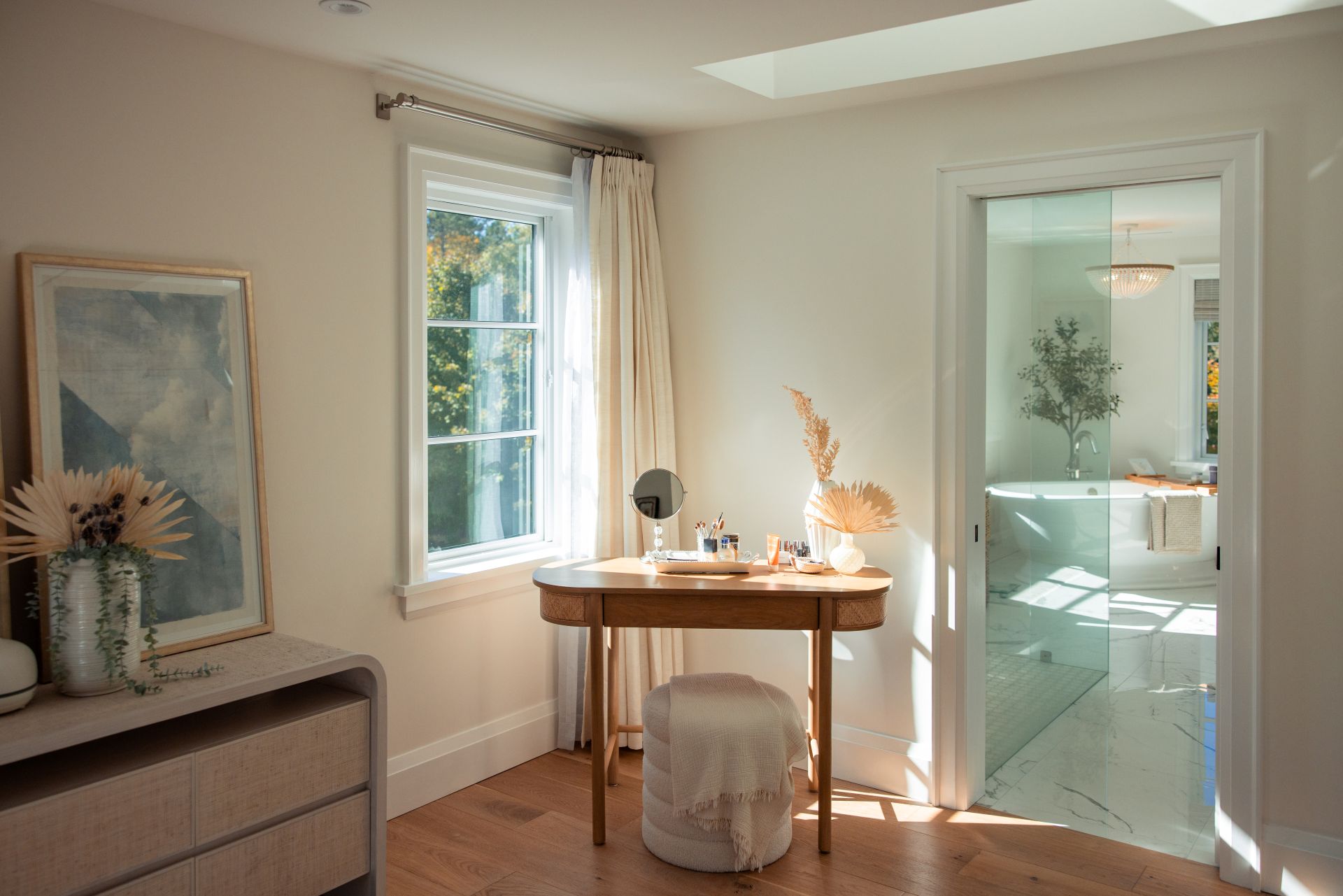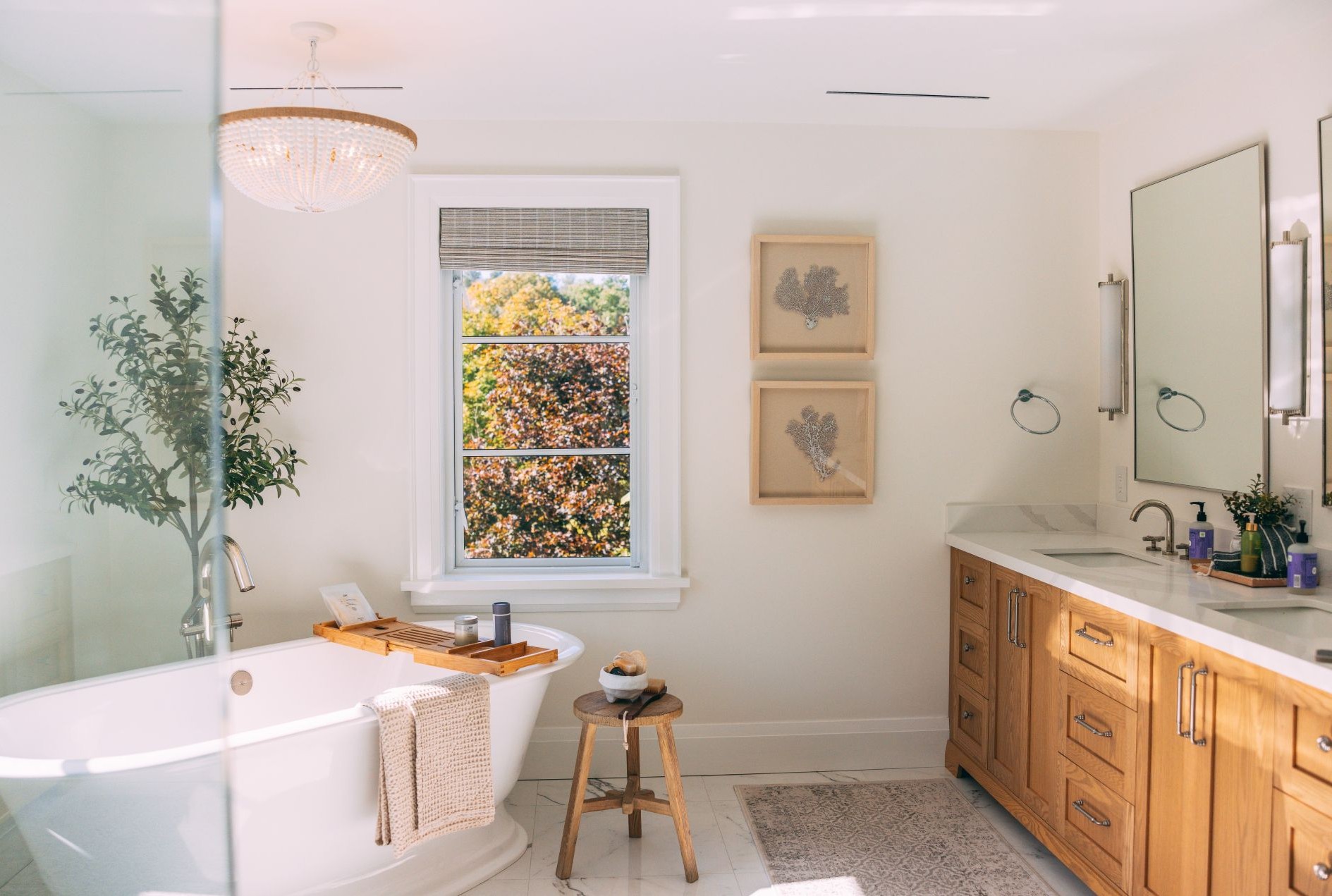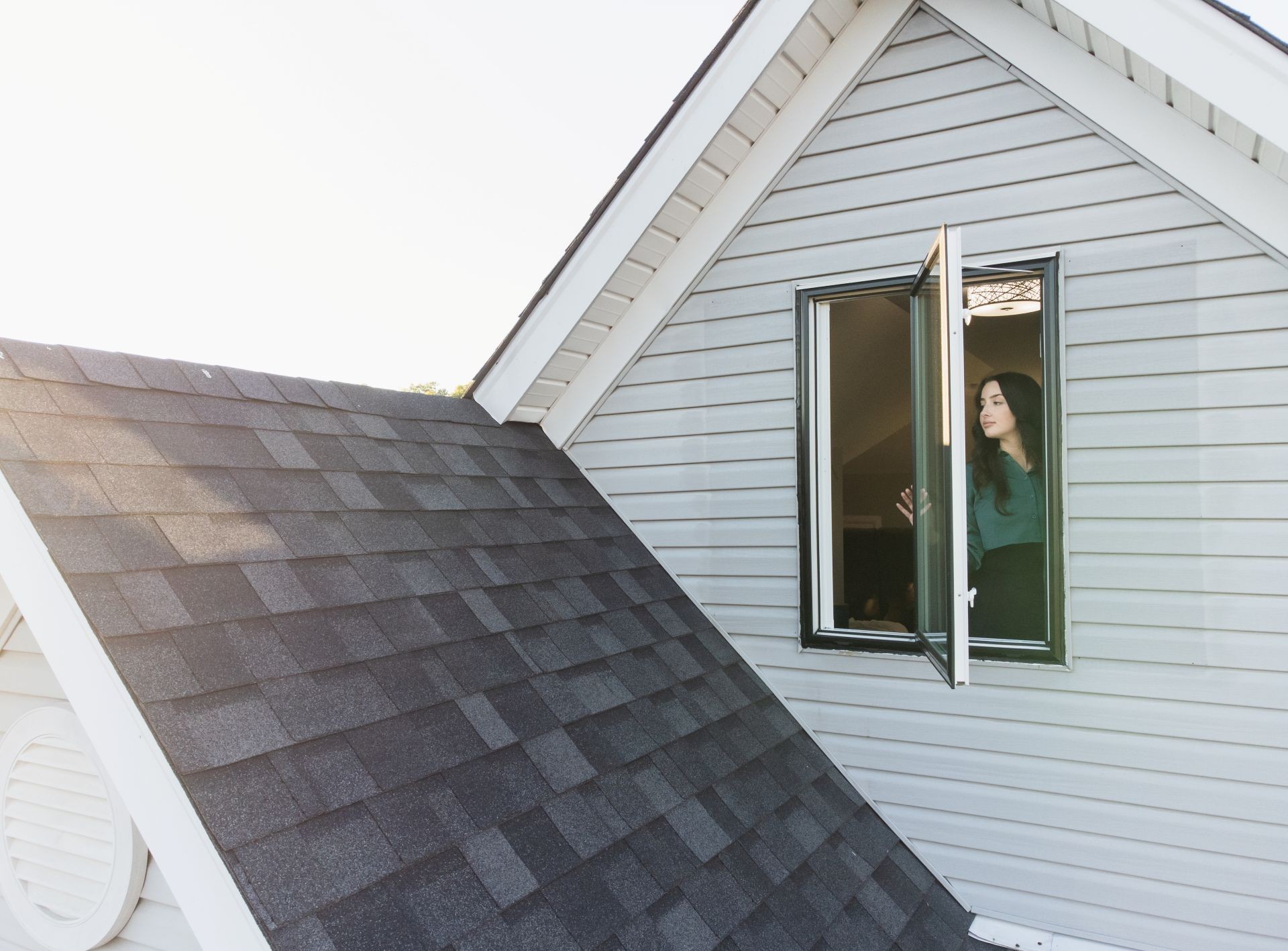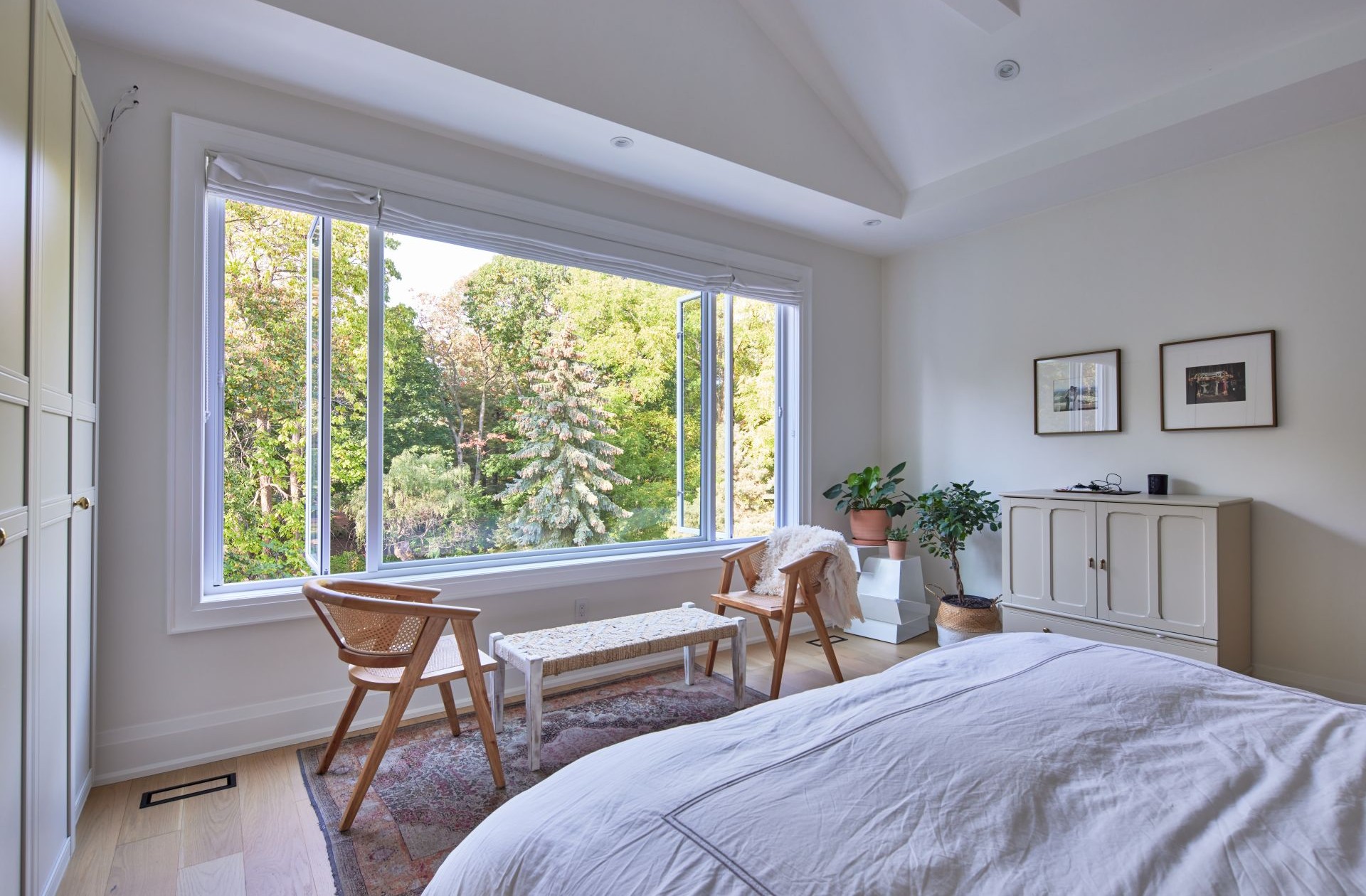
Window Cleaning
How to Get Rid of Musty Smell in House: Tips and Solutions
A musty smell in house is often a sign of hidden moisture problems that can lead to mold and mildew growth. This distinctive, stale odor can develop in any space with high humidity, poor ventilation, and lots of organic materials: these conditions create the perfect environment for microbial life to thrive. And, believe it or not, this unpleasant odor is more common than you think. Every homeowner has to deal with it sooner or later.
Therefore, if you want to understand what causes that unpleasant smell in your house, how to identify the issue, and how to address musty smells, read on! We'll help you maintain a fresh-smelling home, as well as protect your health and property against damage!
Key Takeaways
- Musty odors typically stem from mold and mildew, which thrive in humid, dark, and poorly ventilated spaces. The most common spaces where condensation and trapped moisture create ideal conditions for their growth include basements, bathrooms, closets, and kitchens.
- Mold exposure can trigger allergic reactions and respiratory issues, as well as aggravate asthma. Individuals with compromised immune systems or mold sensitivities are particularly vulnerable, which is why it's important to detect and remove mold early.
- To truly get rid of musty odors, you must identify the source of the problem. Solutions may include improving air circulation, reducing humidity, and repairing leaks. Air purifiers, dehumidifiers, and even window upgrades can make a major difference in creating a healthier indoor environment.
What Causes Musty Smells in a House?

Musty smells in the house are usually caused by mold and mildew growth. They thrive in humid environments, even more so if they lack ventilation and natural light: the perfect breeding ground for mold spores. Even if there are no visible leaks or water damage, high humidity levels alone can be enough to allow mildew to take hold.
One of the most common contributors to musty smells is condensation. When moisture collects on cool surfaces, typically windows, walls, or pipes, it creates a damp environment where mildew can flourish. This is particularly problematic in basements, bathrooms, and closets. Moisture can also become trapped within porous building materials, like insulation, drywall, and wood.
Poor air circulation further exacerbates the issue. When fresh air doesn't flow freely throughout the home, moisture lingers and creates a stagnant atmosphere. This way, mold spores can grow undisturbed.
However, a musty smell isn't always caused by mold growth. Musty air can also be linked to:
- Pet odors
- Dirty HVAC systems
- Stale water
- Damp or dirty laundry
- Old books and papers
- Leaky pipes
- Drain smells
- Certain foods or spices
- Damp soil
Common Sources of Musty Odors
Poorly ventilated rooms and spaces that are prone to high humidity are at a higher risk of having stale air and musty, earthy odors. These include:
- Basements
- Bathrooms
- Attics
- Laundry rooms
- Kitchens
- Closets
Let's discuss more about each.
Basements
Basements are notorious for harboring musty smells, and for good reason. They are located below ground level, which means they're also more susceptible to water intrusion, especially after heavy rain or in areas with high groundwater levels. Several factors contribute to this issue, including:
- Limited ventilation, which traps moisture
- Porous materials like insulation, carpeting, or drywall, which absorb and retain dampness
- Cool temperatures, which encourage condensation on walls and floors
- Poorly insulated windows
- Lack of a drainage system in the window well
To keep your basement free of a musty smell, you need to address any signs of water intrusion as soon as possible. Keep an eye on humidity levels, use a dehumidifier if necessary, and make sure the basement is properly ventilated at all times.
Bathrooms

More often than not, houses smell musty because of the moisture that accumulates in the bathroom. This space is constantly exposed to water and steam, which create the perfect environment for mold and mildew growth, even more so if there are no windows. Plus, bathrooms have plenty of objects mould spores can attach to, including:
- Damp towels
- Shower curtains
- Bath mats
Furthermore, mold can even grow behind tiles or under sinks, especially if there's a hidden leak.
To reduce musty odours in bathrooms, make sure to run exhaust fans during and after taking a shower. Additionally, keep surfaces dry and free of dust, clean your shower curtain regularly, replace damp towels, and inspect for signs of mold around fixtures and grout lines.
Kitchens
Although kitchens may not seem as moisture-prone as bathrooms or basements, they can also develop musty smells, especially if there's hidden water damage or poor maintenance. Contributing factors include:
- Spills and cooking steam
- Leaks under sinks or appliances
- Spoiled food
To keep your kitchen fresh, clean surfaces regularly, check for leaks, and open windows regularly to let fresh air in. If a musty smell persists, it may be necessary to investigate behind cabinets or hire a professional to rule out hidden mold.
Closets and Other Enclosed Spaces
Small, enclosed areas like closets and storage rooms are often overlooked but can also become musty over time. These spaces have little to no ventilation and may trap moisture from damp clothing, stored items, or even condensation on adjacent walls. To prevent odors:
- Avoid storing wet or damp items in closets.
- Use moisture and odor absorbers like silica gel or charcoal bags.
- Keep closet doors open occasionally to promote airflow.
How to Identify Musty Smells
To effectively remove a musty smell, you must first locate its source. Mold and mildew thrive in dark, damp, and poorly ventilated areas. Look for:
- Leaks under sinks or behind walls
- Spoiled food in cupboards or the refrigerator
- Damp clothing or towels left in enclosed areas
- Water-damaged materials in basements or attics
- Condensation-prone windows and pipes
- Damp patches on soft furnishings
- A musty smell coming out of your air conditioning
If a musty odor lingers and you can’t pinpoint where it’s coming from, consider hiring a professional to conduct an indoor air quality test. These assessments can detect hidden mold, moisture issues, and other contaminants that may not be visible but are contributing to the smell.
How to Remove Musty Smells

If you want to get rid of musty smells for good, you need to remove the moisture source first, as well as any mold or mildew growth. Otherwise, even if you do get rid of the smell with diffusers or scented candles, the smell will keep coming back. Below, you can find some tips on where to start.
1. Improve Air Circulation
Stagnant air allows moisture and odors to linger. Therefore:
- Open windows daily to let in fresh air.
- Use ceiling or portable fans to keep air moving.
- Install exhaust fans in bathrooms and kitchens.
- Remove clutter in basements or storage areas that restricts air movement.
2. Reduce Moisture Levels
Mold cannot thrive without moisture, so if you remove its main preference, it will stop growing. To eliminate moisture:
- Use dehumidifiers in damp areas like basements and laundry rooms.
- Promptly fix water leaks and dry wet materials (walls, carpets, etc.).
- Clean gutters and ensure proper drainage away from your home’s foundation.
- Seal cracks in walls, windows, or floors that may let moisture in.
- Replace windows and doors that are old and improperly sealed.
- Maintain indoor humidity between 30% and 50%.
3. Use Air Purifiers
While not a replacement for moisture control, air purifiers can help reduce airborne mold spores and lingering odors. Here are some tips in this regard:
- Choose models with HEPA filters to capture 99.97% of mold particles.
- Look for activated carbon filters, which absorb odors and VOCs.
- Position purifiers at least 6 inches away from walls for optimal airflow.
4. Cleaning Mold-Affected Areas
If you only notice some small mildew spots, you can easily clean them with a bit of water and soap. If mold has grown on a larger area (but not larger than 10 square feet, in which case you should seek professional help), you may need to use a fungicide or a homemade solution with vinegar or bleach.
However, make sure to wear protective clothing and ventilate the area properly while you're removing the mold:
- Wear gloves, goggles, and a respirator mask.
- Avoid dry-scrubbing moldy surfaces, as this can release spores. Instead, use a damp cloth to wipe away any visible mold.
- Dispose of rags, sponges, and moldy items in sealed bags, placing them in outdoor trash bins.
Besides this, try the following:
- Dust and vacuum regularly to prevent mold from feeding on dust or organic debris.
- Wash fabrics in the hottest water safe for the material in question with a heavy-duty detergent. Use chlorine bleach for white fabrics or add a bit of vinegar or hydrogen peroxide.
- Discard moldy items like cardboard, fabric, or insulation that can't be salvaged.
- Get your carpets professionally cleaned or use a high-quality carpet cleaner to clean them yourself.
5. Natural Remedies to Absorb Musty Odors
In addition to deep cleaning and moisture control, you can use some natural deodorizing methods to freshen your living space:
- Baking soda: sprinkle on carpets or place bowls in musty areas to absorb odors
- White vinegar: place small bowls around the home to neutralize smells
- Activated charcoal: use in closets or enclosed spaces to trap odors and moisture
- Boiled lemon peels: serve as a natural air freshener and odor neutralizer
While these methods won’t kill mold, they can help reduce musty smells during or after remediation.
Health Risks of Mold and Mildew
The musty scent in a home is often linked to the presence of mold, which releases microbial volatile organic compounds as it grows. Exposure to mold (especially toxic black mold, which can be downright dangerous) can cause various health symptoms, even in otherwise healthy individuals. These symptoms often develop quickly after exposure and may include:
- Sneezing
- Coughing
- Nasal congestion
- Itchy eyes or throat
- Respiratory discomfort
Some people are especially sensitive to mold and may experience more severe reactions. Groups at a higher risk include:
- People with asthma: mold can trigger or worsen asthma attacks
- People with mold allergies: the immune system reacts to mold spores as allergens
- Those with a weakened immune system: these individuals are more vulnerable to infections and complications
Eliminate Musty Smells with Brand-New Windows and Glass Doors

If you've tried cleaning, dehumidifying, and improving airflow but still notice that musty odor, it may be time to assess the condition of your windows and glass doors. Did you know that they're often the main culprits behind unsteady indoor temperatures and high humidity? Old or poorly sealed units can trap moisture and prevent proper ventilation, both of which create the perfect environment for mold and mildew to thrive.
If you decide to invest in modern, high-performance units, you won't only get rid of musty smells. You'll also improve your home's energy efficiency and increase curb appeal. Below, you'll discover why Magic windows and glass doors might be exactly what you're looking for!
1. Enhanced Ventilation, Effortless Fresh Air
One of the most effective ways to eliminate musty odors is by improving ventilation. Magic windows and doors are built with innovative, easy-to-operate mechanisms that allow for smooth and consistent airflow throughout your home.
Unlike older, stubborn fixtures that are hard to open or often get stuck, Magic products feature our patented Parallex hardware that makes window and door opening incredibly easy! This way, you'll be able to bring in fresh air and flush out stale, humid air that contributes to odor buildup.
2. Built-in Retractable Screens: Fresh Air Without the Compromise
Magic's retractable bug screens are seamlessly integrated into our window and door frames, remaining completely hidden when not in use. This means you can enjoy fresh air and natural light without obstruction. When you want to prevent bugs from entering your house, you simply have to pull the screen out of its cartridge.
This smart design ensures your home stays well-ventilated without compromising on aesthetics, functionality, or comfort. This can prevent the damp conditions that lead to mildew and musty odors.

3. Energy Efficiency That Fights Moisture
Magic windows and glass doors feature advanced energy-efficient technology, including double- and triple-glazing, more inert gas between panes, and highly insulating thermal blinds. (In fact, many of our models exceed ENERGY STAR certification requirements!)
These components help regulate indoor temperature and control humidity, reducing condensation on glass and surrounding materials, a common source of hidden moisture and mould growth.
4. Slim Frames, Brighter Spaces
Magic's sleek, minimalistic frames are engineered to maximize glass surface area, which brings more natural light into your home. Sunlight not only creates a more inviting atmosphere but also helps inhibit the growth of mold and mildew, which thrive in dark, damp environments. Brighter rooms also make it easier to identify early signs of water damage or hidden moisture that may contribute to musty odors.
Curious to learn more? Give us a call and let one of our specialists reveal our magic tricks!
Frequently Asked Questions
How do I fix a musty smell in my house?
To fix a musty smell in your house, improve ventilation, reduce indoor humidity, and locate and remove any sources of moisture or mold. Use dehumidifiers, clean affected areas, and consider upgrading windows or insulation to prevent future dampness.
Can a house smell musty without mold?
Yes, a house can smell musty without mold. This is often caused by excess moisture (before mold appears), stagnant air, pet odors, cigarette smoke residue, a poorly maintained HVAC system, or even damp laundry. These conditions can still promote odor-causing microbial activity even if mold isn't obvious.
What does a musty smell mean in a house?
A musty smell in a house usually indicates excess moisture, poor air circulation, and the possible presence of mold or mildew. It’s a sign that the indoor environment may be damp and needs attention to prevent health or structural issues.
Why does my house smell musty, but I can't find mold?
You may notice a mildew smell even if there is no visible mold or mildew growth. Mold can grow in hidden areas, like behind walls, under floors, or inside HVAC systems.
What if I can smell mold but can't find it?
If you smell mold but can’t find it, hire a professional who can perform an indoor air quality test or moisture inspection. These inspections can detect hidden mold and identify problem areas behind walls or in hard-to-access spaces.